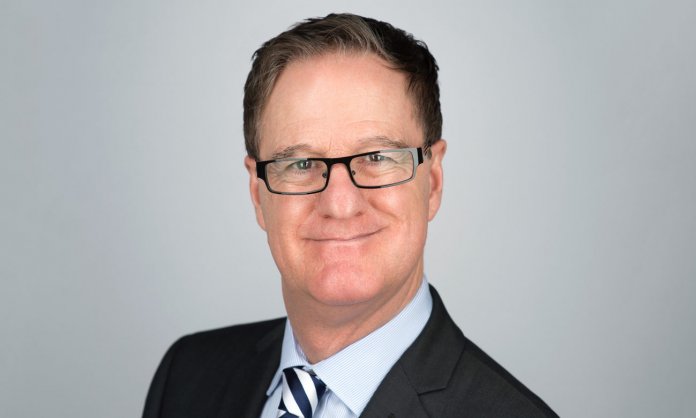TMS. With over a decade of experience managing MICE Knowledge, what inspired you to establish this consultancy, and what have been some of the most rewarding aspects of leading your own company?
Rob Davidson. For most of my career, my principal focus has been on teaching MICE management in universities in different European countries. But 10 years ago, I realised that I was spending more and more of my time in consultancy, research, and training MICE professionals in locations all over the world. These activities were incredibly exciting and rewarding for me on a personal and professional level. So I decided to leave my full-time employment as a professor and create my own company MICE Knowledge, based in London
(www.miceknowledge.com). This gave me the time and freedom to travel internationally to train MICE professionals, such as venue managers and convention bureau staff, in any country in the world. I also have the flexibility I need to do practical research for any MICE organisation. For example, my latest consultancy project was working on a strategy for the growth of the MICE sector in Ireland.
But I still love teaching MICE management, because this gives me the opportunity to inform and inspire the next generation of professionals entering our industry. So I continue teaching as a Visiting Professor in two European universities, one in Switzerland and the other in Austria, and I enjoy this very much. I have also continued to write educational books about the MICE industry, and my latest one is called ‘Business Events’. It gives me enormous satisfaction to know that my books are read by MICE students in colleges and universities all over the world. The future of our industry depends on us being able to attract the brightest and best young people, and that is an important motivation for me in everything I do.
TMS. Your career spans both academia and industry. How has your background in teaching enriched your approach to managing MICE Knowledge, and what synergies do you see between these two fields?
Rob Davidson.There are many clear synergies between academia and our industry. For example, both teaching and conferences involve communication and the sharing and creation of knowledge. I speak at many MICE conferences in all world regions, and I always use the same techniques that I use when I am teaching: prepare well, by researching the topic thoroughly; get the attention of the audience by telling them that they will learn something new, important and useful; and communicate the ideas and information clearly and in an engaging way that inspires the audience and keeps their attention.
The research element is vitally important. Unfortunately, the MICE industry, in my opinion, does not invest enough in good-quality surveys and other research projects that can give us all the data we need to operate at an optimum level as an industry. There are many gaps in our knowledge, which must be filled if we are to compete successfully. There are some shining examples of reliable, rigorous research, but we need to do much more in this regard. And that means more investment in MICE research by companies, organisations and governments.
TMS. In your experience, what are the most common challenges faced by MICE professionals, and how does MICE Knowledge help address these issues?
Rob Davidson. Any MICE destination needs two things to be successful and realise its full potential: an excellent physical infrastructure (conference and exhibition centres, a good transport network, a range of accommodation options) and an excellent human infrastructure – skilled, well-informed, professional, men and women working in all sectors of our industry, as conference organisers, convention bureau managers, incentive travel agencies, exhibition centre managers, venue sales, destination management companies, et cetera, et cetera.
In my experience, many destinations aspiring to enter the MICE market invest heavily in their physical infrastructure but do not invest enough in educating and training people to manage the various elements of the MICE industry. MICE Knowledge addresses this issue in two main ways: firstly through publishing training manuals, such as ‘Winning Meetings and Events for your Venue’ and secondly by running training seminars in countries all over the world for MICE professionals, such as sales staff in hotel venues and convention bureau managers.
For example, my next business trip will be to the Belgian city of Antwerp, where I will be training MICE managers in the use of Artificial Intelligence in our industry. For me, it is always exciting to spend time with people working in our industry and to hear them discuss the various challenges and satisfactions of their jobs.
TMS. How do you see the role of destination marketing evolving in the MICE industry, and what strategies do you recommend for attracting international audiences?
Rob Davidson. The international MICE market is becoming more and more competitive each day, as new world regions, countries and cities realise the potential rewards, financial and otherwise, of becoming a destination for conferences, incentive travel and trade fairs.
When I first came into our industry, the vast majority of such events were still held in European and North American cities. But all of that has changed now, and destinations are having to compete much harder to win large international MICE events. This means that professionalism in destination marketing is even more important than ever.
A well-resourced, properly-funded convention bureau is essential for any destination hoping to compete in this international market. And the staff of the convention bureau must use all of the marketing techniques available: exhibiting at international exhibitions for the MICE industry, running familiarisation trips to showcase their destination to conference organisers and incentive travel planners, advertising in the MICE press, and so on. But attracting international events also requires a sound understanding of market trends.
MICE event organisers are looking for unique destinations that offer more than simply good accessibility, accommodation, venues and, of course, security. They are choosing destinations that can add value to their events by, for example, attracting more participants, or offering knowledgeable local speakers or relevant places of interest for their participants to visit.
Destinations need to target events that reflect their own specialisms and local industries. For example, the London Convention Bureau successfully targets conferences in sectors such as Finance, the Life Sciences and the Creative Industries, because these sectors are strong in London. Destinations need to looks at themselves and their local industries and ask themselves: what are our local industrial strengths and how can we harness them to win more international events?
TMS. How do you stay informed about the latest developments and innovations in the MICE industry, and what resources do you find most valuable?
Rob Davidson. This is more difficult than it used to be, for the simple reason that there are now more resources to read each year. More and more organisations are publishing reports and surveys, for example on trends in the MICE industry. One of my favourites is the annual IBTM World Trends Report, which explores developments in all sectors of the MICE industry.
I also regularly read many of the publications of the various MICE associations from around the world. One that I find very useful is the monthly Convene magazine of the PCMA (Professional Convention Management Association) which offers high-qualit insights into trends in our industry. To keep up-to-date with the latest developments in MICE technology, I like to read the blogs of the technology company Cvent, which are always informative (www.cvent.com/en/blog). Nevertheless, as I mentioned above, there are still many gaps to be filled in terms of how much we know about our industry.
TMS. Finally, how do you hope to inspire future generations of MICE professionals, and what message would you like to share with them?
Rob Davidson.I want young people worldwide to understand that the MICE industry offers exciting, fulfilling careers to men and women who are prepared to work hard and share the passion that I have for this sector. This is a ‘people industry’ based on mutual trust and cooperation between all stakeholders, and those who have the right knowledge, skills and attitude can always succeed in it. Our challenge is that too many young people know very little about the MICE industry.
My students are around 20 years old, in general, so, before I teach them, they already know a lot about other types of events such as cultural events, sports events and family events (parties and weddings). But MICE – or business events – are either completely unknown by them, or, worse, they imagine that conferences and exhibitions, for example, are dull and boring.
My mission is to change their opinions and inform young people worldwide about the joys and satisfaction that working in MICE can bring them. And to do this I will continue writing books, teaching and working with any university or college that wishes to create a programme in MICE.















